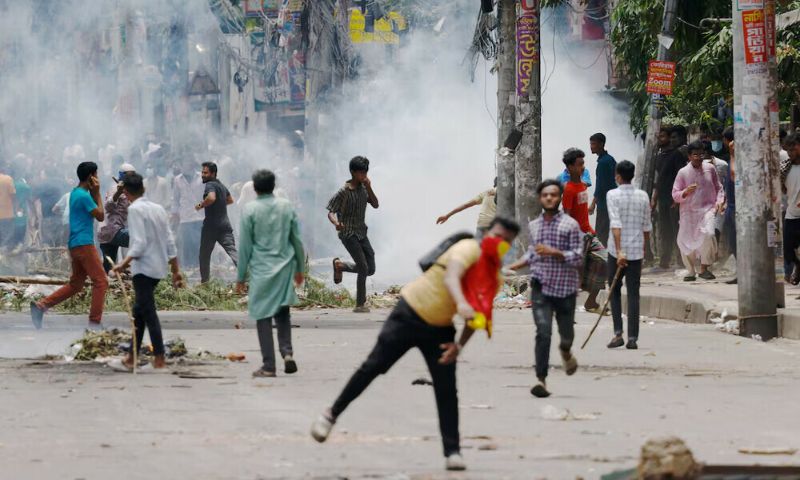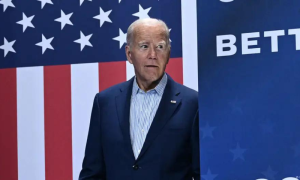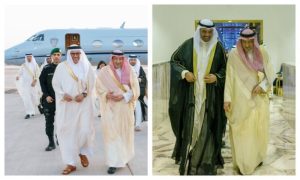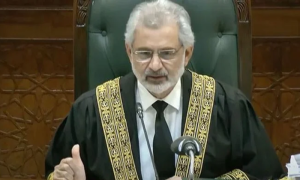DHAKA: Police in Bangladesh clashed with protesters on Wednesday, deploying tear gas and sound grenades to disperse crowds demonstrating against violence that killed at least 150 people this month during student-led agitation against government job quotas.
The unrest is posing a significant challenge for Prime Minister Sheikh Hasina, who is already facing criticism for her handling of the situation.
The latest wave of protests is led by the Students Against Discrimination group, which has been at the forefront of demonstrations against job quota policies. Although the Supreme Court abolished most of the controversial quotas on July 21, students have continued to protest, demanding justice for the deaths and injuries sustained in recent violence.
In the northeastern district of Sylhet, protesters broke through police barricades and attempted to march towards the courts. Regional Deputy Commissioner Azbahar Ali Sheikh explained that the use of force was necessary after the protesters attacked police officers who were trying to clear the roads.
“We requested the protesters to move from the road, but they didn’t listen and instead attacked the police, forcing us to disperse them with tear gas and stun grenades,” Sheikh said.
Clashes also occurred in Dhaka, the capital, and the southern port city of Chittagong. Reports indicate that while the number of casualties was not immediately confirmed, there were injuries and several students were detained during the confrontations. The protests, dubbed the “March for Justice,” were organized to highlight the violence and alleged government intimidation that have plagued recent demonstrations.
In response to the violence, the Students Against Discrimination group has called for a United Nations investigation. Mohammad Mahin Sarkar, a coordinator for the group, stated, “We will also demand a United Nations investigation into the violence.”
International rights groups have condemned the mass arrests that have taken place over the past two weeks, with nearly 10,000 persons detained on charges related to the protests. Bangladesh’s government has defended its actions, stating that it is seeking assistance from the United Nations and other international bodies to investigate and address the situation.
In Dhaka, Prime Minister Sheikh Hasina announced that Bangladesh had appealed to the UN and other international organizations for help. “We seek their assistance in conducting a proper investigation and ensuring punishment for those responsible,” Hasina said at an event.
The European Union has postponed discussions with Dhaka regarding a new cooperation pact intended to enhance trade and economic ties. However, a finance ministry official, Uttam Kumar Karmaker, clarified that the delay, now scheduled for the first week of November, was due to the UN General Assembly and not directly related to the recent unrest.
The violence has led to widespread disruptions, including internet shutdowns and a nationwide curfew enforced by the army. Security forces have used rubber bullets, tear gas, and sound grenades to control the massive crowds that have taken to the streets since protests began in universities and colleges in June.
Hasina’s government has announced plans to ban Jamaat-e-Islami, a major Islamic party, and its student wing. The government alleges that these groups are responsible for the violence during the protests. Law Minister Anisul Huq confirmed that a ban would be declared through an executive order on Wednesday. Jamaat-e-Islami condemned the decision as “illegal, extrajudicial and unconstitutional,” accusing the ruling Awami League of using state machinery to target opposition parties.
The party, which had its registration effectively barred by a 2013 court ruling due to conflicts with Bangladesh’s secular constitution, has denied any role in instigating the violence.
Rights groups and critics say Hasina has become increasingly autocratic during her last 15 years in power. The United Nations, global rights groups, the United States, and Britain criticized Dhaka’s use of force against the demonstrators.























